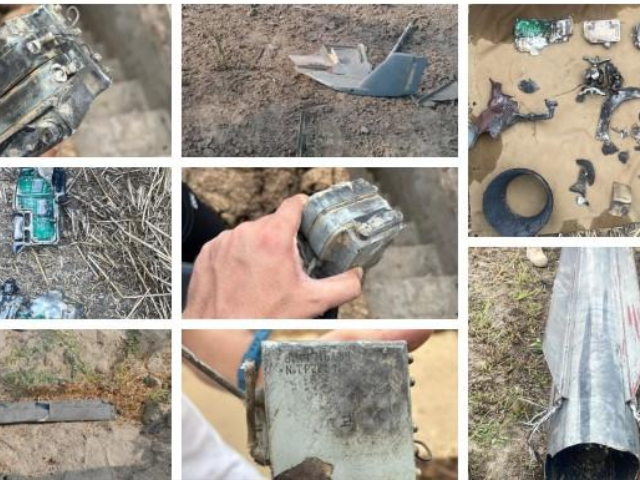ISLAMABAD: As many as 29 Israeli-made Harop drones flown by India over multiple cities of Pakistan have been shot down, the military said on Wednesday as the information minister called the neutralised unmanned vehicles (UAVs) “war trophies which will be kept in museums.”
The remotely-piloted aircraft were neutralised using both electronic countermeasures (soft-kill techniques) and conventional weaponry (hard-kill systems) after they were detected over several cities across Pakistan, the military’s media wing, the ISPR, said in a statement.
The military described the drone incursions as a “desperate and panicked response” by India after Pakistan’s armed forces shot down its five jets – including three prized Rafale aircraft – and destroyed several Indian military posts in retaliation for the brazen missile attacks on civilian infrastructures in multiple cities of Pakistan on the night between May 6 and 7.
Debris from the Israeli-origin drones is being recovered from various locations, the ISPR said, adding that New Delhi has suffered substantial losses along the Line of Control (LoC) since its military misadventure. “The Pakistan Armed Forces are responding decisively to all hostile actions and continue to thwart enemy intentions,” it added.

Meanwhile Information Minister Ataullah Tarar told lawmakers in the National Assembly on Thursday that the Indian drones are a “war trophies” of Pakistan’s armed forces which will “be kept in museums”. “We will show them to our children and tell them that when India failed with its jets, it used drones,” he said in a passionate speech.
Earlier in the day, DG ISPR Lt Gen Ahmed Sharif Chaudhry said that the drones were neutralised in Lahore, Gujranwala, Rawalpindi, Chakwal, Bahawalpur, Mianwali, Karachi, Chor, Miano and Attock. He added that one of the UAV partially struck a military target near Lahore which caused a minimal damage to equipment.
“Four Pakistan Army personnel were injured in a drone attack in Lahore, while one civilian was martyred in Miano, Sindh,” the spokesperson said. He termed the attempts as a continued pattern of aggression and affirmed that Pakistan’s forces remain on high alert to defend the country’s airspace and territorial integrity.
Referring to the downing of five of Indian jets by PAF, the military spokesperson said that India “apparently lost the plot” and suffered heavy casualties along the LoC. The international community can clearly witness the dangerous trajectory India is following through these provocative military actions, which are threatening not just regional stability but also broader global security.
Simmering tensions between Pakistan and India came to a boil when India unleashed a barrage of beyond visual range (BVR) missiles at civilian infrastructures in several cities of Pakistan in a reckless violation of Pakistan’s sovereignty triggering a befitting response from Pakistan’s military in which Delhi lost its air force assets. The international community has stepped up efforts to prevent the situation from spiraling into a full-blown war between the two nuclear-armed neighbours.























